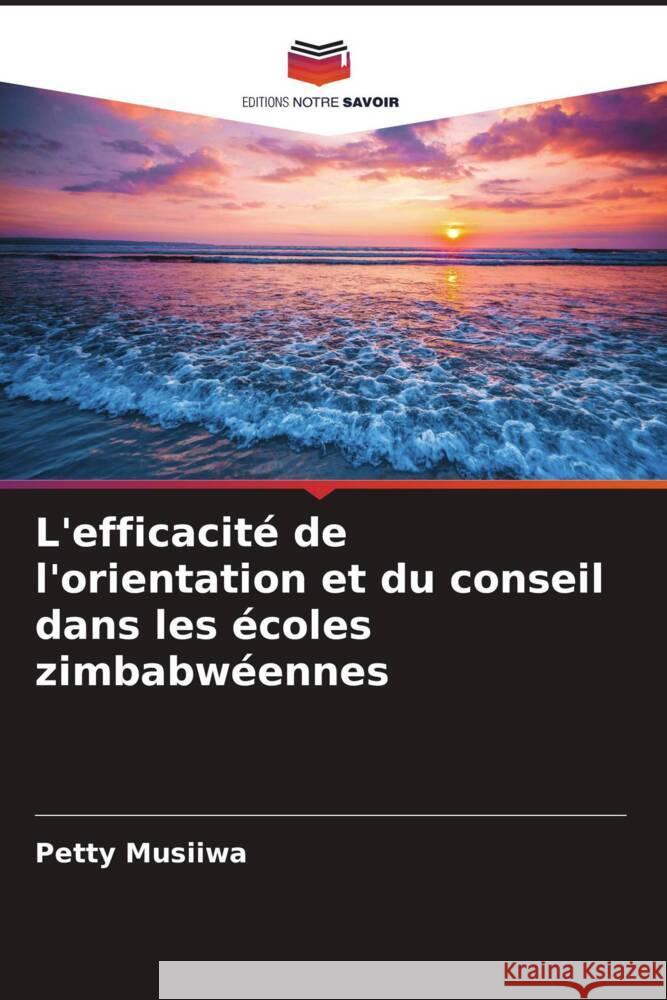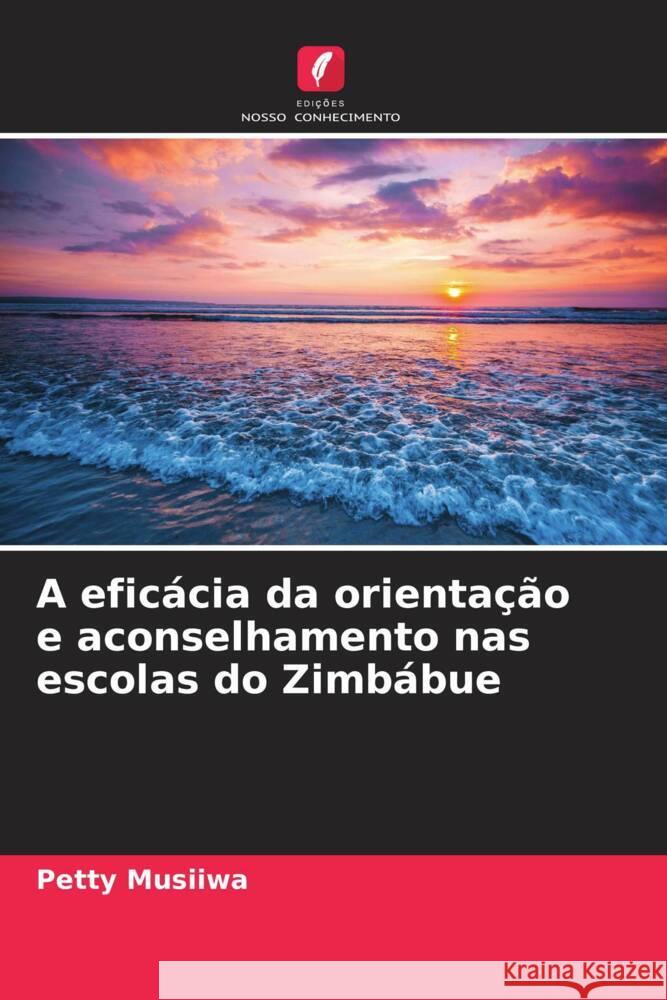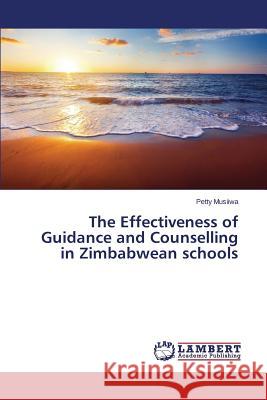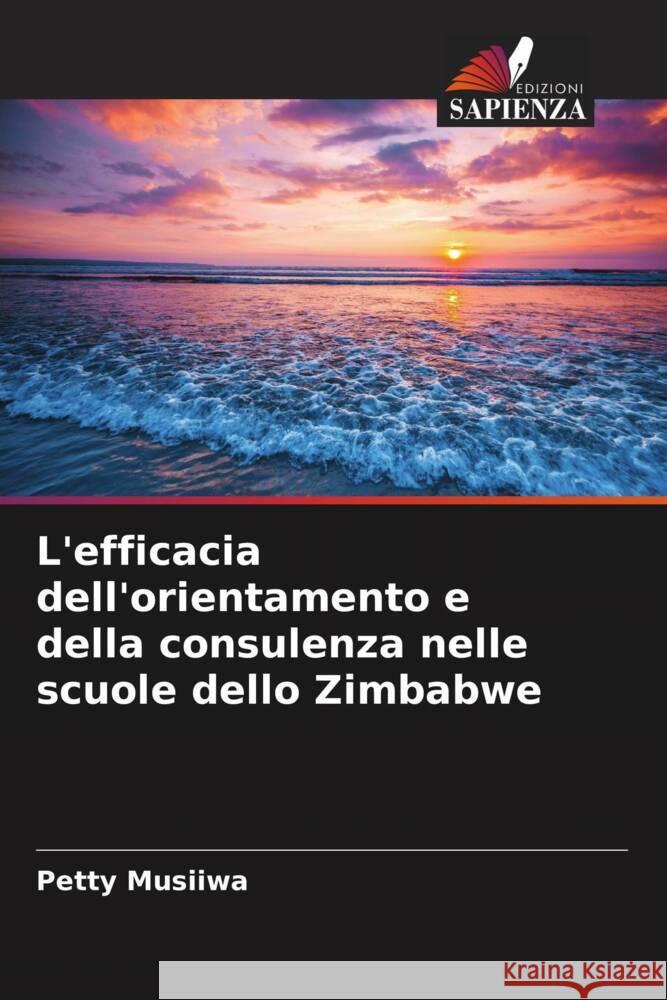topmenu
Wyniki wyszukiwania:
wyszukanych pozycji: 6
 |
Skutecznosc poradnictwa i doradztwa w szkolach w Zimbabwe
ISBN: 9786209368592 / Polski / Miękka / 2025 / 140 str. Termin realizacji zamówienia: ok. 10-14 dni roboczych. |
cena:
200,83 |
 |
L'efficacité de l'orientation et du conseil dans les écoles zimbabwéennes
ISBN: 9786209373718 / Francuski / Miękka / 2025 / 144 str. Termin realizacji zamówienia: ok. 10-14 dni roboczych. Les enfants d'aujourd'hui sont exposés à des défis sociaux et psychologiques de plus en plus importants, tels que le divorce, la pauvreté et d'autres formes de maltraitance de la part de leurs parents, de leurs éducateurs et de leurs tuteurs. Certains enfants sont abandonnés à la naissance et certains parents ne leur apportent plus les soins et le soutien émotionnel dont ils ont besoin. Ces expériences traumatisantes les hantent pendant leurs jeux et leur apprentissage à l'école. L'orientation et le conseil sont donc essentiels pour aider ces victimes à utiliser leurs ressources...
Les enfants d'aujourd'hui sont exposés à des défis sociaux et psychologiques de plus en plus importants, tels que le divorce, la pauvreté et d'aut...
|
cena:
200,83 |
 |
A eficácia da orientação e aconselhamento nas escolas do Zimbábue
ISBN: 9786209394195 / Portugalski / Miękka / 2025 / 144 str. Termin realizacji zamówienia: ok. 10-14 dni roboczych. |
cena:
200,83 |
 |
Die Wirksamkeit von Beratung und Betreuung in simbabwischen Schulen
ISBN: 9786209371158 / Niemiecki / Miękka / 2025 / 144 str. Termin realizacji zamówienia: ok. 10-14 dni roboczych. Kinder sind heute mit immer größeren sozialen und psychologischen Herausforderungen konfrontiert, wie Scheidung, Armut und anderen Formen des Missbrauchs durch Eltern, Betreuer und Erziehungsberechtigte. Einige Kinder werden bei der Geburt ausgesetzt, andere Eltern geben ihren Kindern nicht mehr die nötige Fürsorge und emotionale Unterstützung. Diese traumatischen Erfahrungen verfolgen sie beim Spielen und Lernen in der Schule. Beratung und Betreuung sind daher unerlässlich, um solchen Opfern zu helfen, ihre inneren Ressourcen zu nutzen, um mit den vielfältigen Herausforderungen fertig...
Kinder sind heute mit immer größeren sozialen und psychologischen Herausforderungen konfrontiert, wie Scheidung, Armut und anderen Formen des Missbr...
|
cena:
200,83 |
 |
The Effectiveness of Guidance and Counselling in Zimbabwean schools
ISBN: 9783659713231 / Angielski / Miękka / 2015 / 140 str. Termin realizacji zamówienia: ok. 10-14 dni roboczych. Children today are exposed to the ever escalating social and psychological challenges like divorce, poverty and other forms of abuse by parents, care givers, and guardians. Some children are abandoned at birth and some parents no longer give their children the care and emotional support needed. These traumatic experiences haunt them during play and learning at school. Guidance and Counselling is therefore essential to assist such victims to use inner resources to cope with the multi-challenges and attain congruency. The school system is usually tasked to provide Guidance and Counselling...
Children today are exposed to the ever escalating social and psychological challenges like divorce, poverty and other forms of abuse by parents, care ...
|
cena:
200,83 |
 |
L'efficacia dell'orientamento e della consulenza nelle scuole dello Zimbabwe
ISBN: 9786209391637 / Włoski / Miękka / 2025 / 144 str. Termin realizacji zamówienia: ok. 10-14 dni roboczych. |
cena:
200,83 |










